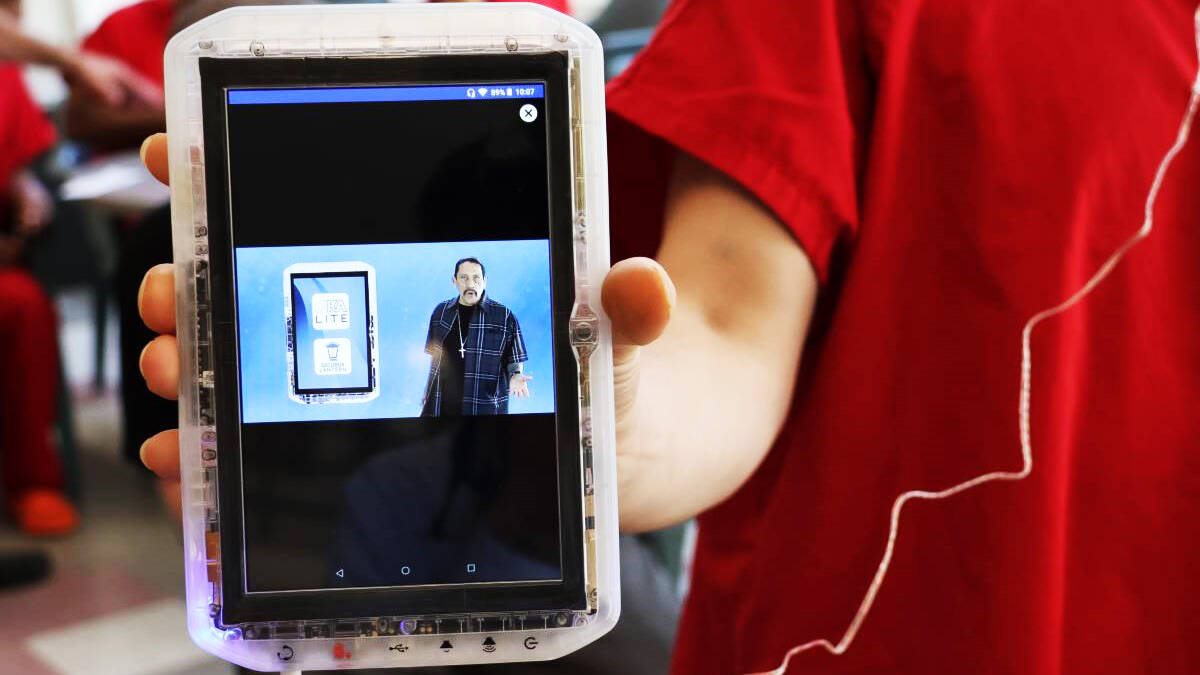Residents at King County’s three secure detention facilities in Seattle and Kent now have access to computer tablets while in custody, according to a King County Department of Adult & Juvenile Detention press release.
The tablets give them new opportunities to build skills, stay connected with loved ones, and engage with educational, mental health and substance use resources, according to the June 5 press release.
The tablet program launched in the spring of 2024 as a partnership with Securus Technologies, a third-party vendor. It is available for detained youth at the Judge Patricia H. Clark Children & Family Justice Center in Seattle, as well as for adults confined in jail at the King County Correctional Facility in downtown Seattle and the Maleng Regional Justice Center in Kent.
“The plethora of e-books, podcasts, music, games, and more, promises meaningful outlets for residents, and a powerful behavior-management tool for staff,” said Director Allen Nance from King County’s Department of Adult & Juvenile Detention. “This program is evidence of how we are fulfilling our promise to improve the lives of people in our custody and empower them with new skills, knowledge, and competencies to make better choices when they return to community. When they return to community with knowledge and competence to make better choices, that is a down payment on our collective investment in public safety.”
Most jail residents will receive a tablet after being assigned to a housing unit, according to the press release. They will have access to the tablet unless it is removed for disciplinary reasons.
There is no charge for standard features. The tablets come pre-loaded with thousands of e-books and podcasts, along with legal research materials. Residents also have access to educational materials, religious services, and substance use resources. Tablets include basic functions such as calculators and clocks, but the cameras are disabled.
All tablet services are free for youth, including phone calls.
Adults in jail can pay for premium content such as movies, TV shows, music, and games, according to the press release. The first two phone calls per week are free. Jail residents can place more calls for a fee. Money for tablet use can be placed on a Securus Debit Account.
The tablets are provided by Dallas-based Securus and are designed for a corrections environment, according to the press release. The vendor provided the hardware and Wi-Fi infrastructure for free and gets paid through subscriptions to premium content. The tablets only provide access to approved programs controlled by Securus. They will not connect to the open internet.
The Department of Adult & Juvenile Detention is working to expand capabilities on the tablets, including materials in additional languages. The department also is tracking whether the tablets have a positive impact on behavior.
Through May 2024, the department oversaw an average daily population of 1,330 adults at its two jails and 49 youth at the juvenile detention facility, according to the press release.
Talk to us
Please share your story tips by emailing editor@kentreporter.com.
To share your opinion for publication, submit a letter through our website https://www.kentreporter.com/submit-letter/. Include your name, address and daytime phone number. (We’ll only publish your name and hometown.) Please keep letters to 300 words or less.

